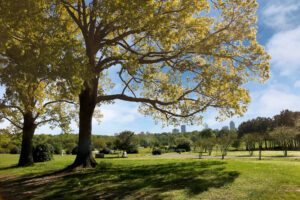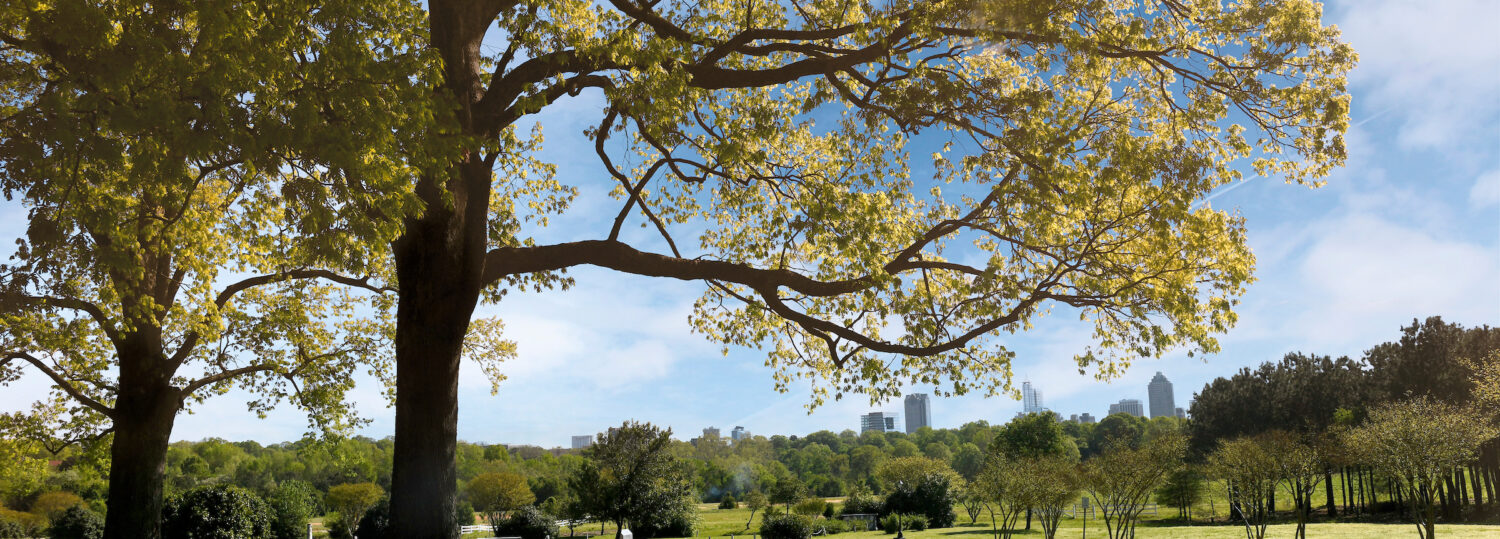In 2020, the Office of Outreach and Engagement awarded three incentive grants to connect NC State faculty to applied scholarship opportunities in communities. The Outreach and Engagement Incentive Grants Program serves to address significant community challenges by aligning interdisciplinary faculty, their expertise, their students, and their research. Here, we profile one of the 2020 Incentive Grant Awardees.
Dr. Lincoln Larson’s research team had big plans for 2020. Like so many of us, their best laid plans went awry due to the COVID-19 pandemic. Yet new opportunities arose at the regional and national levels, and now Dr. Larson shares some of the lessons learned and hopes for the future.
Dr. Larson, Associate Professor in the Department of Parks, Recreation and Tourism Management, led a team from the College of Natural Resources that was awarded an Outreach & Engagement Incentive Grant in 2020. The proposed project was to broaden community engagement in the planning process of Dorothea Dix Park, a large public park in the heart of Raleigh, slated to be one of the biggest urban park development projects of the next century. They originally planned to seek feedback from neighborhoods close to Dix Park that had been underrepresented and historically marginalized in previous city planning processes. Dr. Larson’s team was particularly interested in the issue of “green gentrification”—gentrification driven by green space and park development projects—and whether that would happen in Raleigh with the Dix Park project.
But because of a number of factors out of their control, including the COVID-19 pandemic, a delayed bond referendum for the park, and staff shake-ups along the way, the project focus shifted, and Dr. Lincoln’s team had to go with the flow.
“When you’re doing community engaged research, expect the unexpected and be prepared to adapt… rarely does it go as you initially planned, and that adaptability and flexibility is really important,” said Dr. Larson. “It’s critical to listen to the partners and collaborators… to identify their needs and provide help where it is needed.”
The new needs of their partners at the Dix Park planning team included a niche that Dr. Lincoln’s team was especially suited to fill—finding out how the park could better engage students, faculty and staff at local colleges and universities. They’re working on a number of ideas to capture feedback from that population this fall (with Dr. Aaron Hipp of CNR leading the process at the campus level). Dr. Larson is hopeful about shaping the potential educational value of the park.

“There’s campuswide implications for this and the opportunities it presents for recreation, teaching, research and extension,” said Dr. Larson. “We all need to be listening and invested and engaged in this process because then we’ll be able to reap all the collective benefits.”
Dr. Larson’s team has also been given the opportunity to continue their work on green gentrification on a national scale. They received a U.S. Forest Service grant to look at equitable urban tree planting, specifically with a focus on the Green Heart Louisville project in Kentucky.
“The community-engaged spirit of this new effort is exactly the same as our original proposal, just on a much larger scale,” said Dr. Larson. “Our national project wouldn’t have come together without the conversations we had leading up to the O&E incentive grant effort.”
Despite all the setbacks, Dr. Larson can see lessons from the experience that might be valuable to others engaging in community work. Along with being adaptable, he says, “honor and respect the time that it takes to build the relationships needed to make this happen.” Relationship building might take some adjustments to work in the “new normal,” Dr. Larson said, “but these are adjustments that we need to make, and I think it’s going to lead ultimately to a better and more collaborative atmosphere where everybody benefits in the long run.”
“When you’re doing community engaged research, expect the unexpected and be prepared to adapt… rarely does it go as you initially planned, and that adaptability and flexibility is really important.”
Dr. Lincoln Larson
